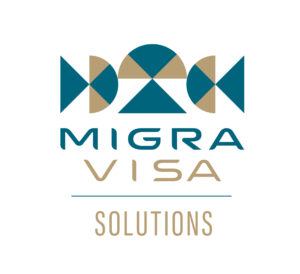
Divorcing a Brazilian citizen involves specific legal processes, especially when the marriage was registered in Brazil or has legal effects in Brazil.
Whether you need to homologate (recognize) a foreign divorce decree in Brazil or register a divorce directly depends on the nature of the divorce and its implications, such as custody of children, alimony, and property division.
1. Direct Registration in Brazil (Averbação Direta)
For simple consensual divorces — those that only involve the dissolution of marriage without child custody, alimony, or property division — foreign divorce decrees no longer need to be homologated by Brazil’s Superior Court of Justice (STJ).
Since the Civil Procedure Code (Law 13.105/2015) came into force in 2016, simple consensual divorce sentences can be directly registered in a civil registry office in Brazil, without judicial involvement. This new rule is regulated by Provimento No. 53 (2016) from the National Justice Council (CNJ).
Required Documentation for Direct “Averbação”:
•Full copy of the foreign divorce decree.
•Proof of finality (the decree must have become definitive).
•Apostille from the country of origin.
•Certified translation of all documents into Portuguese by a sworn translator in Brazil.
2. Divorce Homologation by the STJ (Superior Court of Justice)
For qualified divorces — those involving child custody, alimony, or property division — homologation by the STJ is still required. This process ensures that the foreign judgment complies with Brazilian law and can produce legal effects in the country.
Only after the STJ homologates the foreign divorce can it be registered in a Brazilian registry office. This is also required when one of the spouses wishes to remarry or when issues like name changes, decided during the divorce, need to be formalized in Brazil.
Required Documentation for STJ Homologation:
•Power of attorney to a Brazilian lawyer.
•Foreign divorce decree.
•Original marriage certificate.
•Statement from the ex-spouse agreeing to the divorce recognition (with notarized signature).
•Apostille of all foreign documents.
•Certified translations of all documents into Portuguese by a sworn translator in Brazil.
3. Special Considerations
•Involvement of Children or Assets: If the foreign divorce involved decisions on custody, alimony, or the division of property, you must go through the STJ for homologation.
•Registration of New Marriages: You can only register a new marriage in Brazil once the STJ has homologated the previous divorce and this decision is duly registered under the Central Civil Notary Office
•Legal Representation: Always consult with a lawyer in Brazil before starting the process to ensure you have the correct documentation, as each case may have specific requirements.
4. Brazilian Consular Assistance
Brazilian consulates abroad can assist with notarizing documents, like the power of attorney, but they cannot process divorces. Additionally, if you cannot travel to Brazil, you can appoint a representative through a notarized power of attorney to handle the divorce homologation on your behalf in Brazil.
In short, whether you go through the direct registration process or the STJ homologation, the involvement of legal professionals and the correct handling of documents is essential for ensuring your divorce is recognized in Brazil.
Our team is committed to staying up-to-date with the latest developments in the legal field and offers a range of specialized services to help your move to Brazil .
We have over 25 years of experience providing high-quality immigration services to our International clients.
We use state-of-the-art technology to provide efficient and effective immigration solutions.
We are confident that with our guidance and support, you will be able to successfully establish and grow your business in this dynamic country.
Do not hesitate to reach out to us if you have any questions or concerns along the way, book your appointment today.

